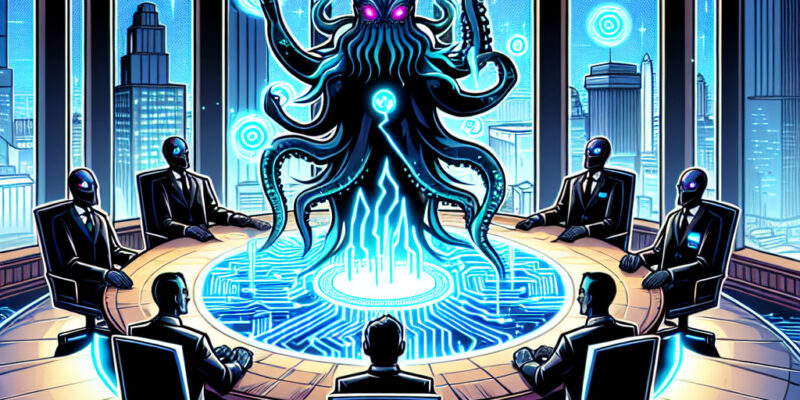Kraken Faces SEC: What’s Next for Crypto Tokenization?

Amid the swirling currents of the rapidly evolving cryptocurrency landscape, one name has again emerged under the spotlight: Kraken. This prominent cryptocurrency exchange recently found itself in deep discussions with the U.S. Securities and Exchange Commission (SEC). Their meeting revolved around the complexities and challenges associated with tokenization—a term that has been reverberating with increasing intensity across financial circles.
It’s a fascinating time for digital assets. Tokenization refers to the conversion of physical assets, like real estate or stocks, into digital tokens that live on a blockchain. These tokens can then be traded just like cryptocurrencies. It’s an idea that holds tremendous promise for revolutionizing how assets are bought and sold, democratizing access to markets, and even potentially laying the groundwork for a more efficient global economy.
The SEC, however, is not easily swayed by potential alone. As the primary regulatory body overseeing securities in the United States, its main concern is investor protection and market integrity. This is where the conversation with Kraken becomes crucial. Traditional exchanges and global regulators have been increasingly vocal about the potential risks and benefits of tokenized securities, urging the SEC to establish a clear regulatory framework that governs these nascent assets.
Kraken, known for its proactive approach in navigating regulatory waters, understands the stakes. Tokenized stocks, one of the most talked-about applications of tokenization, offer investors exposure to traditional equity markets through a digital asset that represents underlying shares. While this opens doors to global investors who might otherwise face barriers to market entry, it also raises questions about compliance with existing securities law, disclosure requirements, and the risks of market manipulation.
The dialogue between Kraken and the SEC is emblematic of a broader, necessary conversation. It’s about how traditional financial principles can be harmonized with innovative digital technologies. The questions they tackled likely veered into complex terrain: What safeguards should be implemented to protect consumers? How can transparency be ensured in token trading? What are the implications for market stability, and how can we accommodate the growing interspersion of cryptocurrency and fiat worlds?
Such inquiries aren’t just theoretical; they have tangible effects on how crypto exchanges operate and strategize. Kraken’s discussion with the SEC might well influence how it and other exchanges approach the tokenization of stocks and other assets moving forward. Yet, while the SEC deliberates, the global market for digital and tokenized securities continues to grow, spurred by investor interest and technological advancements.
If this meeting signals anything, it is the impending inevitability of a more structured approach to regulating tokenized assets. For entities operating within the cryptosphere, understanding and adapting to regulatory expectations will be a key determinant of success. Meanwhile, for investors and market participants, these regulatory moves promise increased clarity, which could bolster confidence and drive further adoption.
Reflecting on this interplay of regulation and innovation, one might wonder: can the pace of regulatory adaptation match the speed of technological advancement in the crypto realm? As stakeholders across the spectrum await outcomes from these discussions, it’s clear that the road ahead is paved with both challenges and opportunities. Whatever the future holds, dialogues like the one between Kraken and the SEC are crucial in charting a path for a more integrated and comprehensible financial future.













